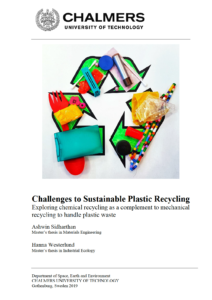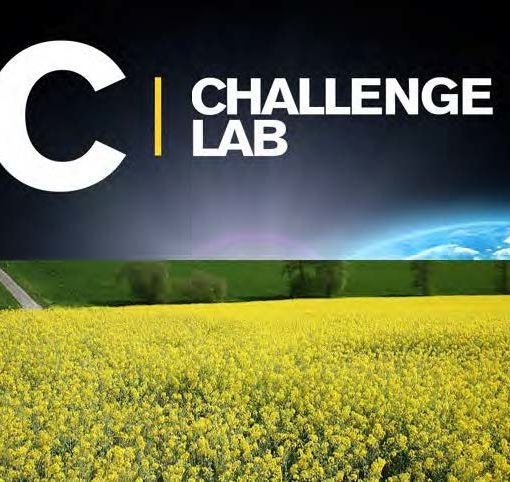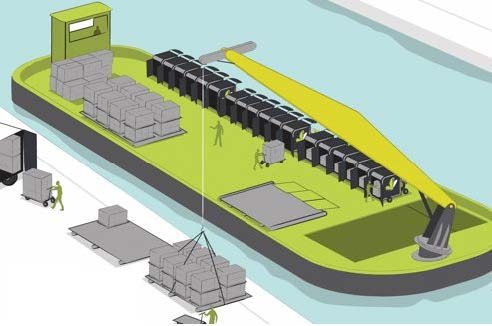ASHWIN SIDHARTHAN & HANNA WESTERLUND (2019)

The use and production of plastics has increased substantially over the years leading to an increase in the generation of plastic waste. Today, plastic waste is either used for energy recovery by incineration or recycled mechanically. However, there has been developments in chemical recycling being a possible alternative to handle plastic waste. The interest for chemical recycling is mainly to do with the improved purity of the secondary raw material, which could be used as an alternative to crude oil, which is what plastic manufacturing is currently dependent on today. Since chemical recycling has not been implemented yet, this thesis sets out to understand what challenges would have to be addressed in order to have sustainable plastic recycling. This leads to the research questions that this project has set out to answer:
- What are the remaining challenges to sustainable material recycling of plastic waste if chemical recycling is implemented as a complement to mechanical recycling in Västra Götaland?
- What are the barriers to and drivers for transition from the current system to this new system?
To begin addressing the research questions it was necessary to define sustainable plastic recycling. In order to understand the challenges that chemical recycling might face, mapping and finding the current challenges in the plastic recycling system was necessary. A brief system mapping of the plastic waste value chain was done followed by interviews with stakeholders from different part of the value chain. The data from the interviews were collected and categorized in order to address the research questions.
The identified challenges to meeting the sustainability criteria in the current system were the lack of market for recycled plastic, lack of either quality or quality assurance and lack of policies that encourage the use of recycled materials. It was also seen that the sorted plastic is exported outside Sweden and there are no regulations meant to track this exported waste.
While chemical recycling can be used to produce better quality secondary raw material, the process is today both energy intensive and expensive. There are no regulations specifically addressing recycled plastics from chemical recycling. There is also uncertainty about the market demand for the secondary raw material. This process would require high volume of plastic feed for recycling to be economically feasible.
The barriers identified for transitioning into the new system are uncertainties with respect to investment and ownership, leading to a lack of a business model to set up the recycling plant. There are also certain technological challenges when it comes to addressing different streams of the plastic waste.
The drivers identified for transitioning into the new system is the willingness to collaborate for change between actors in the value chain. National and regional goals also restrict the possibility to incinerate plastics. The secondary raw material from chemical recycling can be accepted in chemical industries without having to make drastic changes in their existing technology.





